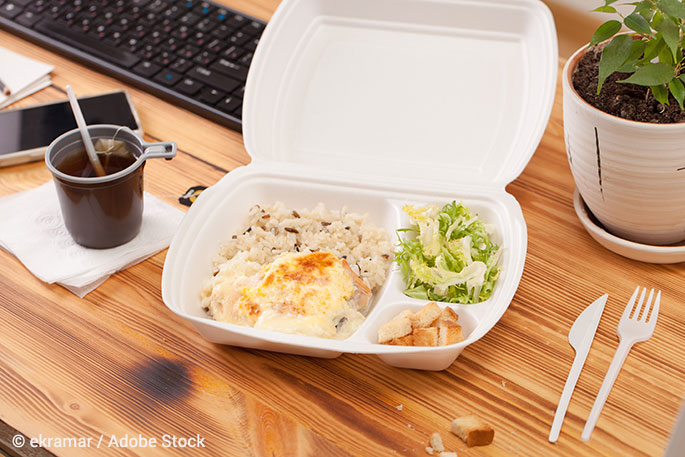
Let’s start with the basic premise that, depending on where you are, this is either a topic you care about or could not care less about. Yes: we need everyone on board to save the planet, yada yada. However, many states do not pay you back for recycling, and many of them will charge you for recycled material pickups. Or you could be in a college town, where they charge three dollars for a “trash tag” that was good for 10 pounds of trash, and you needed another trash tag if you were over (so yes, you need to weigh your trash). If you didn’t look closely, you could soon be spending over $100/month to get your trash out of your home.
Maximize your recycling thriftiness; get a compost bin all ready to go, separate your glass in different colors, and get your 25 cent refunds on every single can and bottle. After trying hard at it for a few weeks, you could reduce your $100 a month in trash tags to around $10.
Takeout might be the single biggest offender because your takeout food likely uses pieces of plastic that will never be used again (and should not be used again, for both hygienic and actual public safety issues).
So here are three easy solutions to reduce plastic waste for you (with links!!)
1. Ditch the straw. Period. Can’t live without it? Buy a portable, collapsible one made out of metal, like this one that’s making waves in Kickstarter here.
2. Ditch the plastic bags. Unless you got a dog, what are you doing collecting random plastic bags in the bottom of your kitchen sink anyway? Give these babies a try.
3. We know it’s a hard thing to do, but do what you can to stop plastic waste with takeout. Some restaurants are taking initiatives like using biodegradable or compostable packaging for their takeout orders. If you find yourself doing takeout far too often, these guys will help you out.
Pro Tip: Get 1, 2, and 3 together in the trunk of your car or, if you use public transit, close to your locker, cube, or front door. Carrying them around (because they’re light, and they’re useful!) is easy to adapt to, and it’s a great conversation starter.




































































































































 Three Ways to Engage Teams and Clients to Maximize Your Recycling Program Engagement
Three Ways to Engage Teams and Clients to Maximize Your Recycling Program Engagement  How to Integrate Accessibility Into Your Sustainability Planning
How to Integrate Accessibility Into Your Sustainability Planning  Why Park Benches Can Promote Workplace Well-Being
Why Park Benches Can Promote Workplace Well-Being 
